Live Reporting
- The central Asian country of Kyrgyzstan has recorded its first cases of the coronavirus, its healthcare minister said on Wednesday according to a Reuters report.Three citizens who arrived from Saudi Arabia all tested positive for the virus. The country had just a day earlier banned entry to all foreigners as a precautionary measure.
- Globally airlines are struggling - with all carriers slashing their routes and warning they will be laying off staff.In Australia, national flag carrier Qantas says it will suspend 90% of international flights and about 60% of domestic journeys.In an email to customers on Wednesday, it urged passengers not to cancel flights and get refunds.Instead, the airlines "strongly encourages" people to get a credit voucher for use later. Passengers gain by not paying cancellation fees, but crucially the airline gets to hang on to those cash reserves it desperately needs.
- Australia and New Zealand have scrapped annual Anzac Day commemoration events in Turkey, amid fears over the spread of coronavirus.Each year traditionally, thousands will travel to to Gallipoli Cove, to mark the countries' participation in World War One.However the threat of the virus spreading and global travel restrictions have made the event unfeasible.Crowd attendance at ceremonies on the day of remembrance have also been cancelled. Australia has flagged that it may "live-stream some events".
- The best and easiest thing is: wash your hands!Coronavirus spreads when an infected person coughs small droplets - packed with the virus - into the air. These can be breathed in, or cause an infection if you touch a surface they have landed on then your eyes, nose or mouth.So, coughing and sneezing into tissues, not touching your face with unwashed hands, and avoiding close contact with infected people are important for limiting the spread.
- Asian stock markets steadied on Wednesday after major economies revealed details of their plans to ease the impact of the coronavirus pandemic.It came after Wall Street's main indexes rebounded by more than 5% on Tuesday after steep falls on Monday.In the US, the Trump administration outlined a $1tn (£830bn) package to support the world's biggest economy.At the same time the UK has revealed details of its own stimulus measures, including £330bn of business loans.Japan's benchmark Nikkei 225 was 1.7% higher, the Hang Seng in Hong Kong was up by 0.3%, and China's Shanghai Composite gained 1.3%.
- Here are more details on the shutdown in Nevada.Governor Steve Sisolak announced the measures in a news conference Tuesday night.“This [coronavirus] is effecting the lives of our citizens. People are dying. Every day that is delayed here, I'm losing a dozen people on the back end that are going to die as a result of this,”All non-essential businesses are affected by the shutdown. Restaurants are only allowed to provide takeout or delivery.Even slot machines in convenience stores will no longer be permitted."America's playground", as Las Vegas is known, is usually open 24-hours a day. The last time the casinos had to lock their doors was on the day of John F. Kennedy's funeral in 1963.Nevada's month-long freeze on gambling will hit Las Vegas hard. The city depends on the glitz of the Vegas strip for its tourism and hospitality-based economy.The closure - which goes into effect Wednesday at noon - will be part of federal guidelines recommending social distancing. Americans are asked to follow sweeping measures for the next few weeks, including for older residents to stay at home and for people to not gather in groups of more than 10 or go to restaurants and bars.
- The UK's Foreign Office is also urging UK citizens to leave Myanmar."This is due to potential pressures on medical facilities and the risk of air routes out of Myanmar being cancelled."Myanmar's government has so far reported not a single case of coronavirus, but there is increasing scepticism about this.Human Rights Watch has said the claims "defy reality" and "give a false sense of security to the country’s people about the disease and their risks of infection".
- Until a few weeks ago, self-isolating yourself and distancing yourself from other people were seen as unusual, even a sign of being unwell. Now, they've become essential measures to stem the spread of the virus.The two are not quite the same.Social distancing involves cutting down on non-essential travel and interactions, staying home if you're unwell, and not visiting social venues.Self-isolation means cutting yourself off entirely from the outside world.Each country is issuing their own advice on who needs to do what, but here's the BBC guide on how to exercise social distancing and how to self-isolate.
Video content
- Just like for the previous day, China's latest figures have only one single new domestic case of a coronavirus infection.The data for Tuesday shows one local case but 12 imported ones.China is where the outbreak started and the new figures brings the country's numbers to:
- 81,000 infections
- almost 70,000 have recovered so far
- 3,241 deaths
- A 17-year-old dog in Hong Kong which had tested "weak positive" for the coronavirus but was then cleared has died two days after coming out of quarantine.The dog belonged to a Hong Kong woman who tested positive for Covid-19. It was allowed home after testing negative, but died shortly after.The case made headlines as a possible first human-to-animal transmission of the virus.The World Heath Organization says there is no evidence pets can be infected with coronavirus. The dog likely just had the virus in its system, and is not believed to have been killed by it.
- More on that press conference earlier from Australian PM Scott Morrison.He saved his strongest words for people who were hoarding and panic-buying food and medicine, telling them simply to “stop it”.Fights between shoppers have been reported in supermarket aisles, while staples such as toilet paper, rice, pasta and meat mince are still rare commodities on store shelves."It has been one of the most disappointing things I have seen in Australian behaviour in response to this crisis," Mr Morrison said."This is not who we are."
- In the Philippines the government has reversed its decision to impose a travel ban on international flights scheduled to begin on Friday.Now all foreign nationals may fly out of the country at any time according to the Inter-Agency Task Force on Emerging Infectious Diseases. Inbound international passengers are also allowed entry, subject to strict immigration and quarantine protocols.The now overturned ban on international flights had left many foreign tourists, dispersed across the country’s more than 7,000 islands, puzzled as to how they could leave the country.With domestic flights in and out of the Philippine capital suspended while the main Luzon region is under lockdown, the British embassy in Manila is reporting a “small number” of Britons affected by the travel restrictions.The government says their “enhanced community quarantine” will stay in place until 12 April.The government says the country currently has a total of 187 confirmed Covid-19 cases with 14 deaths, but experts are warning that with limited pre-emptive testing the number is likely to be higher.
- You would have heard by now that washing your hands is one of the most important and effective ways to keep the coronavirus at bay - but you shouldn't be doing just a quick rinse. Here's a quick video to explain the correct technique.
Video content
- It's "rien ne va plus" for Las Vegas for now.The US state of Nevada is ordering the closure of casinos, restaurants and all non-essential businesses.While a few casinos had already shut down business, the new order will have the glitzy gambling capital of Las Vegas come to an abrupt halt.The order will come into effect at noon on Wednesday and is currently planned for an entire month.
- The coronavirus is of course also affecting the BBC. Many are working from home and many are getting ready to do so. But TV programmes can only come from a studio (for now) - and the BBC has announced a number of changes to its news output in light of the situation."These are unprecedented and difficult days," the BBC's director of news, Fran Unsworth, said."Trusted, accurate information is vital in a public health emergency and the BBC has a key role to play."Programmes including Politics Live and Victoria Derbyshire have been temporarily suspended, allowing the News Channel to focus on "core news".Question Time, which has political figures and commentators taking questions from the public, will move to a prime time 20:00 slot on BBC One. The show will be without a studio audience though.
- Australian Prime Minister Scott Morrison's press conference this morning was his most frank statement yet about how Australia was in this for the long-haul – of at least six months or more.He said all decisions they announced needed to be sustainable for that period.One of the key announcements was the ban on gatherings of more than 100 people - that includes places of worship but not schools and universities or “essential” locations which range from hospitals and airports to shopping centres and workplaces."They are essential places of where there are essential gatherings. Non-essential is everything else," said Mr Morrison.The school policy has been controversial - as calls grow for them to be closed and several independent schools shut of their own accord.However, Mr Morrison said the health advice remained the same - and cited Singapore where schools have remained open and "they have been effective in managing and limiting the transmission of this virus".He has warned closing schools could cost tens of thousands of jobs and could take 30% of health workers out of the health system.
- The latest advice to Britons from the UK's Foreign Office is to delay all non-essential travel.Its website says:If you now need to change or cancel your travel plans, follow these steps:
- contact your airline, travel company, cruise line or other transport and accommodation providers
- get in touch with your insurance provider
- continue to follow the NHS coronavirus guidance
- The 1918 influenza epidemic killed between 17 and 18 million Indians, more than all the casualties in World War One. India bore a considerable burden of death - it lost 6% of its people.To be sure, the medical realities are vastly different now. Although there's still no cure, scientists have mapped the genetic material of the coronavirus, and there's the promise of anti-viral drugs, and a vaccine.Yet, there appear to be some striking similarities between the two pandemics, separated by a century. And possibly there are some relevant lessons to learn from the flu, and the bungled response to it.Read more Soutik here: What India can learn from the deadly 1918 flu
- San Francisco’s streets are far quieter than usual. Most people are obeying the shelter in place order but that doesn’t mean all residents are staying inside.The city’s mayor said residents can go for runs or hikes and many seem to be taking the opportunity to get out and do just that. Though runners passing one another on empty streets are making an effort to keep their distance.Meanwhile, commercial streets lined with stores and restaurants seem the most abounded. Many restaurants have printed signs declaring they are open for "delivery only".Many technology companies in the Bay Area have prided themselves on their flexible working policies allowing employees the opportunity to work from home whenever they wanted. Now that all-but-essential workers are being told to stay home, San Franciscans will have the chance to test whether the pleasure of working from the sofa does fade.
- Still have questions about this virus and how it spreads? Our 60-second video explainer tells you all you need to know.
Video content

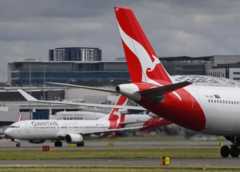
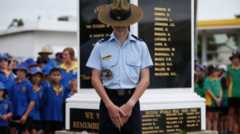
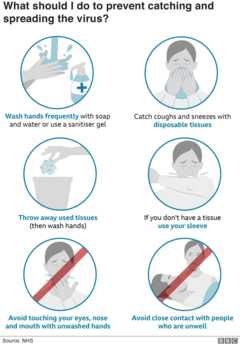



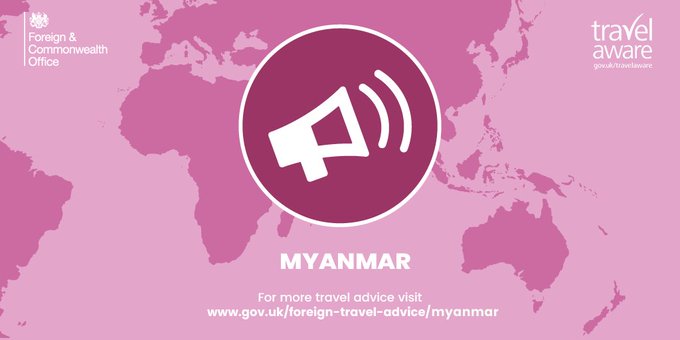






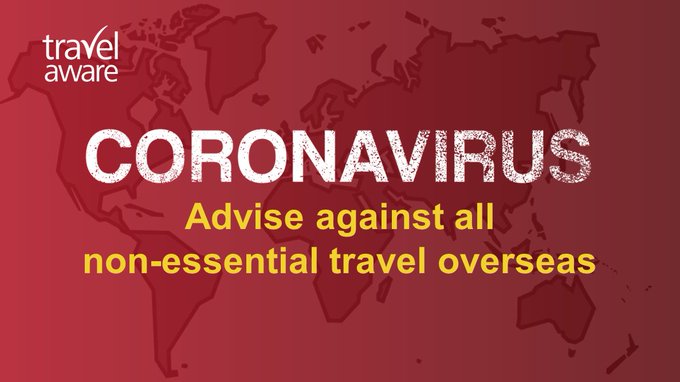
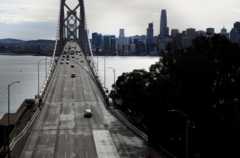
No comments:
Post a Comment